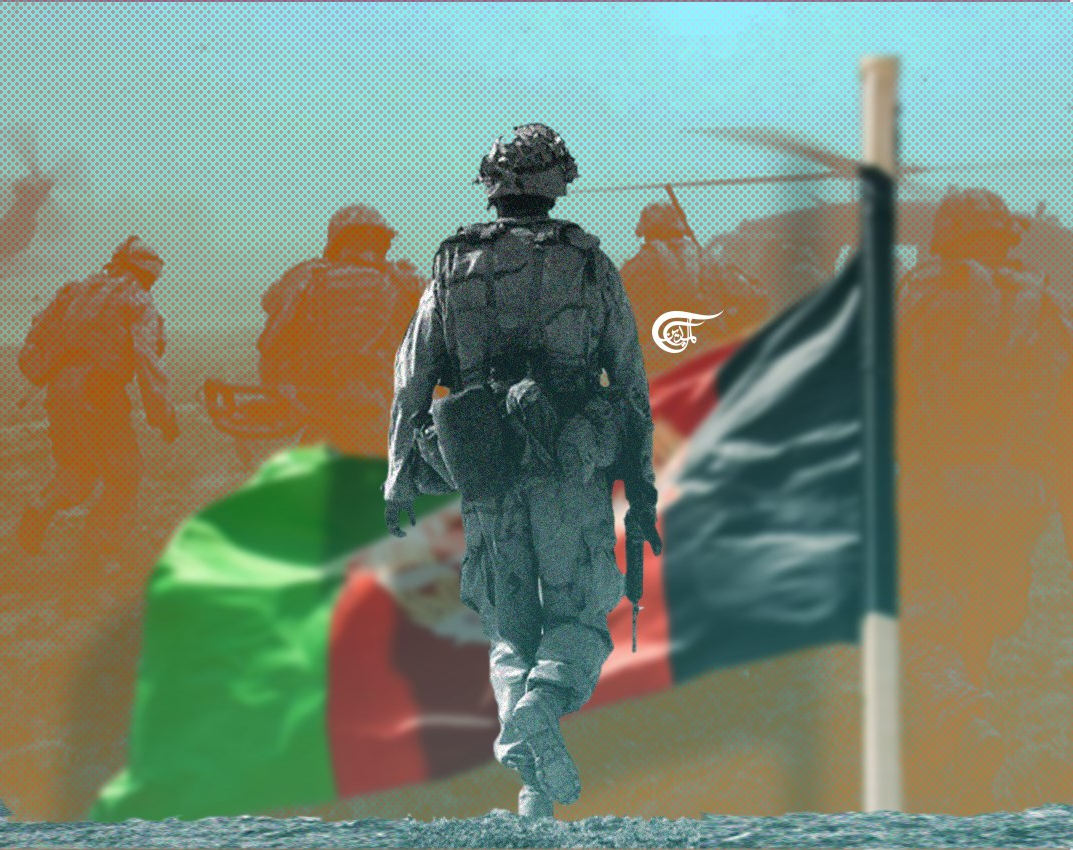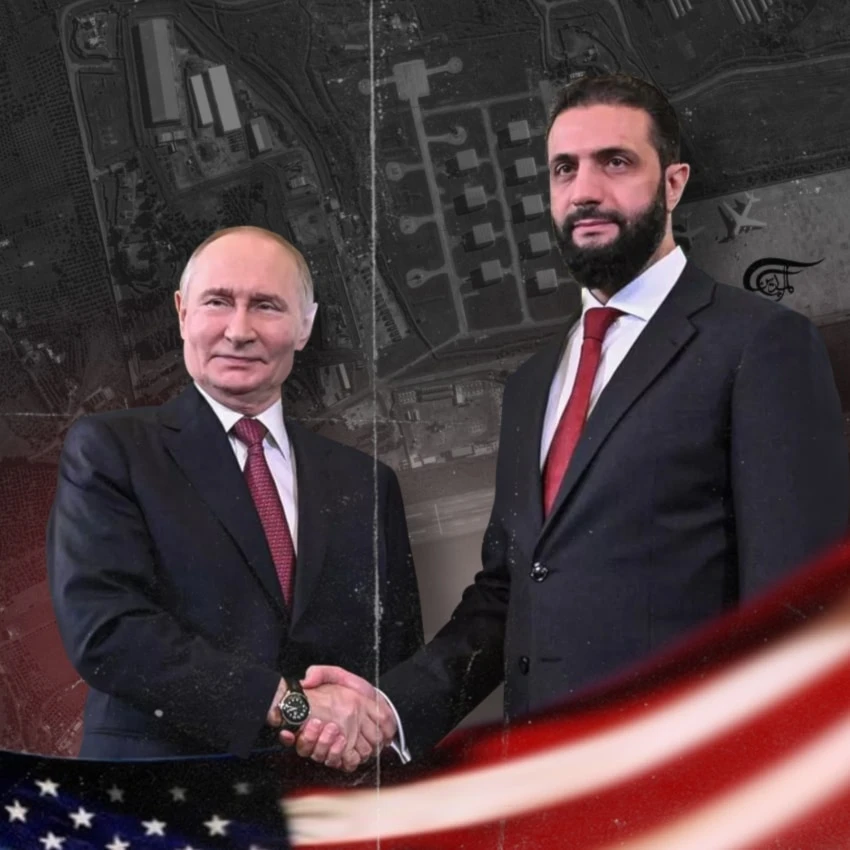Interventions and Withdrawals
What we are witnessing nowadays proves that the US withdrawal from the countries they intervened in may be just as dangerous as the invasion itself, because it was designed to ensure that the country continues, yet in the form mapped out for it.
It is essential for our ailing countries and our peoples who are paying high prices to conduct fact-based and realistic assessments of each and every US intervention in the Arab countries, not to mention the disasters that these interventions have brought down, all the blood they spilled and all the destruction they caused to what we have built in our countries. We should also study the motives and consequences of their crimes and withdrawals when those happen. It is no longer acceptable at any rate to go through the daily events with a day-to-day mentality and move from one day to another without actually learning and drawing lessons from them so as to use them efficiently in the formation of our vision for the present-day and the future, as well as in the materialization of our decisions.
The situation is best described in the words of the late Ramsey Clark, who said, "Nobody knows, when the World Trade Center in New York was blown up, why the US chose to invade Afghanistan first and then Iraq in a plan that included invading seven countries in five years." As a matter of fact, no one is fully aware of the real motives of the US behind withdrawing from Afghanistan at this particular time and in this particular way, although these motives unfold before those who are concerned and interested in the matter in the repercussions of these withdrawals on the neighboring countries and on the regional and international relations. So far, the relationship between the US aggressive interventions and withdrawals, on the one hand, and the sanctions that they impose on the countries involved or on other countries, on the other, has not yet been studied. These questions and many others need research centers capable of drawing lessons and extracting deductions, and, at the same time, presenting concepts and methods of thinking and planning that are, without doubt, of great value to the countries that suffer from these interventions or sanctions or both.
Ramsey Clark also said that no one knew what Afghanistan and Iraq had to do with the 9/11 attacks in the US, and although the reasons they had submitted for invading these two countries outside the framework of the United Nations were proven false and untrue, the world made no reaction because the United States constitutes the greatest military power in the world, meaning that the logic of force has dominated the reactions of the international community. The pretexts used for the invasion of Afghanistan were summed up in fighting the terrorism that struck in New York and eliminating the "Taliban" after uprooting "al-Qaeda". However, 20 years later, the United States handed over Afghanistan and its borders with the neighboring countries to the "Taliban", perhaps with the intention of using the "Taliban" wild card against Russia, China, and Iran, and encouraging any extremist Islam that resides in western China to intertwine and cooperate with the "Taliban" in order to destabilize China and threaten its unity. It goes without saying that China is too big and powerful to be affected by such a threat, but it might, nevertheless, distract it and waste some of its resources. It is necessary to make a comparison between Afghanistan before the US invasion and its situation after that, and even between the situation of Afghanistan since the fifties of the last century and its situation today. The reason is that such comparisons proves by numbers the societal, political, economic and educational disasters that this invasion has brought down on the Muslim Afghan people, which requires a long time and massive budgets, as well as organization and willpower, to be able to get rid of the repercussions and rebuild the country all over again.
In our backyard lies a relevant example that depicts the Arab reality and what we know about it. To this end, we can examine the US invasion of Iraq and draw conclusions from it, and this must apply to most of the countries that were subjected to such a military invasion during different times in history. For despite all its shortcomings and flaws, our precious Iraq was the Arab country that brought forth intellectuals, scholars, and poets, and the al-Mutanabbi Market in Baghdad was the only market in the world dedicated for books only. Iraq was the educated country that printed thousands of copies of any book issued from Morocco to Kuwait, because the educated Iraq would buy most of these copies. Moreover, the achievements of the Iraqi scholars had raised Iraq and taken it to advanced stages in scholarly research, knowing that education in the country was one of the best educational systems in the Arab world.
But the US invasion of Iraq, which took place under the pretense of dismantling weapons of mass destruction, which have proved to be non-existent over time, targeted the Iraqi infrastructure, the Iraqi scholars, the Iraqi army, as well as the political parties, organizations, antiquities, and all the people who were impoverished, killed and displaced in millions. The US administrator of Iraq, Bremer, established a constitution that guarantees the inability of the Iraqis to unify their ranks and bring their efforts together to put an end to all the divisive and destabilizing intentions that achieves the colonizers' dream of plundering the oil of Iraq. The constitution was also aimed at keeping the Iraqis in a poor environment that drives away education, scholars, scientists, medicine, doctors and all what could constitute an indication or a sign of Iraq coming back to life. The reason is that with such revival, the Iraqis would be able to take matters into their own hand; by building their own lives, reconstructing their country, and being their own masters.
The ongoing discussions over possible US intentions to withdraw from Iraq indicates withdrawal attempts similar to those of Afghanistan, where US advisors stay behind to run the country, the US intelligence makes sure that no resistance gains enough strength to fight it or change the course the US forces have set for Iraq and the Iraqis, and the US air forces undertake the mission of eliminating any form of resistance in any position on the Iraqi soil.
In the meantime, separatist currents would receive funding and support, and the neo-Ottoman power would be unleashed to occupy any part of the beloved land of Iraq, whilst keeping everyone weak and incapable of confronting that multi-handed creature that has fortified the causes that maintains Iraq’s weakness and inability to invest its oil to generate energy, improve the level of services and education, and get the environment back on the right track. Once this is achieved, the Iraqis will be able to produce future generations capable of changing the path of Iraq’s future and transforming it from a country ruled by US advisors who ensure its continued weakness and plundering of its wealth, into a country ruled by its own people who mount up their points of strength and open the door for all the Iraqis to invest their distinguished intellectual potentials in the course of rebuilding this country to be a beacon to the Arab region and the entire world.
What we are witnessing nowadays is best proof that the US withdrawal from the countries they intervened in may be just as dangerous as the invasion itself, because it was designed to ensure that the country continues, yet in the form mapped out for it by the invasion and imposed sanctions. This would stifle all its energies, thus posing a constant threat to anyone who dares to challenge the map set by the colonizer in order to supervise its execution over the upcoming years and perhaps over decades. It is worth mentioning that these countries that have long suffered from the US military invasion and are supposed to witness the withdrawal of any military presence will continue to be weighed down by the US sanctions indefinitely. Moreover, the advisers chosen to oversee the restoration of the country's wellbeing fail to make any proposals to lift these sanctions, or at least to explain their devastating impact on people's lives. Thus, the sanctions continue to be used as part of the withdrawal plans, in an attempt to keep the country under the mercy of poverty and backwardness and guarantee the continuous looting of its wealth for the benefit of the occupying invader over the coming decades.
This is the bitter truth behind the US allegations of spreading freedom and democracy and of its concern for human rights. And if the circumstances allow honest researchers to study these cases, from the invasions to the withdrawals and sanctions imposed on many countries in the world, they will reach results capable of changing the concepts of humanity once and for all. This entails a dire need and a demand to rewrite world history, so that the future generations do not feed on the same lies and misleading stories that are in no way related to the reality. As a matter of fact, the peoples of our countries pay the price of these lies and fabricated stories with blood, anguish, heartbreak, and endless sufferings on all levels. It goes without saying that this is a huge, important research project, and I hope that the competent people will pick it up and establish the necessary foundations for it, because it is essential for us and for our children and grandchildren.

 Bouthaina Shaaban
Bouthaina Shaaban
 9 Min Read
9 Min Read












